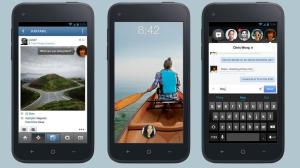I have been out of the US for two weeks, almost exactly at this point. One week was spent in London to connect with my family, and one week has been spent in Kigali, getting settled in to both my apartment and my new role.
I wanted to share some initial thoughts on Kigali, the amazing place that it is, and some of the bumps we (myself and girlfriend ) had upon arrival.
Our arrival to Kigali was one that had us a bit on the edge as we had to leave some luggage behind at London Heathrow.
There was a 30kg per person limit, and a 30 Euro / 1kg overage charge. Assuming you had 2 23kg bags as was the limit on the previous. You are now 16kg * 30 over per person. So we made the choice to ditch and ship rather than get hit with what was somewhere around $1000 in overage fees. (So just a word of caution, double check your baggage allowance, especially on multi-city flights, which is what we had).
Once we arrived, the first Airbnb had some problems ( sometimes you can only see a place once you peel back the layers ) .
We ended up moving into a new long term furnished apartment by Wednesday. From this point on I would definitely say that peace has rained ( pun ).
Peace
Coming from a large city San Francisco / London you forget to value peace and quiet among the hustle and bustle of a large city.
Kigali is a lot like Jamaica in it’s vegetation, rolling hills and abundance of rain. I am able to walk to work, vs sitting in Bay area traffic for 1+ hours, each way. This has given me no amount of joy as I am on my way in.
Fruits and vegetables that are grown locally are excellent. It is subtropical so pineapple, avocado, passion fruit and mango are in abundant supply.
The views from the apartment that we are staying in, in Kimihurura are pleasant and relaxing day or night.
Work
I have started working with Rwanda Online on a several month contract. The most immediate efforts are around launching Irembo 2.0, and making sure that the platform is able to scale to serve the needs to it’s citizens. There have been some interesting discussions around the office, and through social circles.
Does digital access to services actually provide the desired outcome. ? Can we understand what is the drop off for people who start applications but don’t finish ? Where is the drop off? What is the total time to complete an engagement ?
Irembo also has a very interesting agent network, where they are able to operate a large network of agents who can assist citizens in filing their paperwork. I think this agent network is one of the key value propositions behind Irembo and what it has to offer.
Plenty more of insights and conversation to be had.
Growth
Kigali is growing. There are opportunities all around, however I feel that due to the small middle class there is a headwind for technology companies that are mainly focused on the Rwandan consumer. Companies like Jumia or ride sharing companies would do well to capture the Kigali market, but it would be hard for them to start here as the local market is a bit small to fuel growth to other regions.
I do feel that there are opportunities in the bread and butter areas of supply chain, agriculture / value added manufacturing, as well as construction.
With the ratification of AfCFTA this opens up trade between different African countries, which could give Rwanda more consistent access to goods and services, as well as the capacity to grow into a software and services market leader.
I will be publishing more about what I learn about the different economic sectors as I explore and talk with more industry experts.
Week 2
Heading into week two, hope to learn more about the growth that is happening around Kigali.






 Firefox for Android
Firefox for Android Firefox
Firefox


